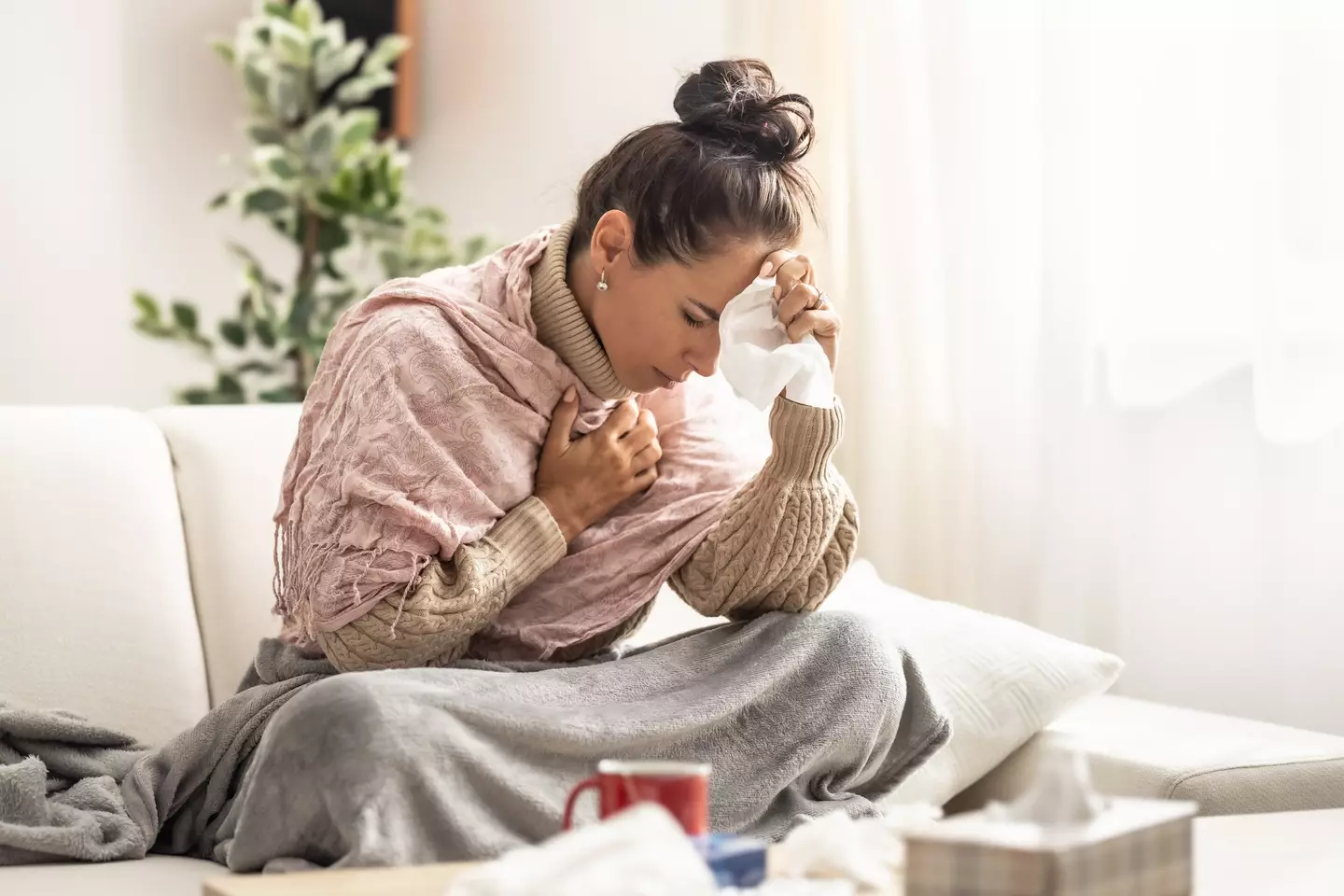Brits have been urged by experts to beware of the growing cases of an illness which can be mistaken for the common flu or cold.
In recent weeks, China has seen a sharp increase in cases of the illness, leading people to fear another worldwide outbreak.
HMPV, or human metapneumovirus, is most common among children, with countries such as India, Kazakhstan and Malaysia also seeing an increase in cases.
If some patients aren’t careful, it can lead to other health complications, such as respiratory issues.

What is HMPV?
The virus first surfaced in 2001, and like the flu, it can be spread through sneezing, coughing, or contact with contaminated surfaces.
Similar to respiratory syncytial virus (RSV), it is a seasonal virus that thrives in colder weather and mostly affects children under the age of five.
But before you start comparing it to Covid-19, it should be noted that it’s a regular seasonal illness that has come and gone across the world for decades, so there is more resistance among the general population, The Independent says.
What are the symptoms of HMPV?
There are a number of symptoms to look out for, according to Public Health Scotland, such as:
- Coughing
- A fever (high temperature)
- Nasal congestion (runny nose)
- Fatigue
These symptoms can take anywhere between three and six days to clear, and while there are no vaccines or specific treatments for the sickness, it should be gone within a week.
Are cases of HMPV increasing in the UK?
Unfortunately, the answer here is yes.
The latest data from the UK Health & Security Agency (UKHSA) reveals that cases of HMPV are ‘increasing slightly’, with 4.5 percent of lab tests being positive between 23 and 29 December.
Compared to the flu, which has 29.5 percent of lab tests positive during the same period, it looks OK, but compared to Covid, it is higher as the latter stood at 2.5 percent.
However, as there is more of a global resistance to HMPV, it is highly unlikely that it will reach anywhere near the scale of the coronavirus pandemic.
What are experts saying?
Professor John Tregoning, who is an expert in vaccine immunology at Imperial College London, has compared the illness to RSV, explaining to The Daily Mail: “It is part of the cocktail of winter viruses that we are exposed to and, like other viruses, it will transmit in coughs, sneezes and in droplets.”
He added that staying in ‘well-ventilated spaces’, and simple things such as covering your mouth when you cough and washing your hands often can help to stop spread the illness.
He also noted that antibiotics won’t have an effect as it is a virus, and the main treatment is to manage symptoms.
Professor Jaya Dantas at Curtin University in Australia explained that we have to ‘wear a mask in public’ and stay away from others to protect the vulnerable.
“In young children, the elderly and those who are immune compromised, HMPV can lead to severe cases and can move to the lower respiratory tract and may lead to pneumonia,” the expert explained.
Another professor, Jonathan Ball, who works at Liverpool School of Tropical Medicine, highlighted: “HPMV has been known about since 2001, and has been circulating in humans for at least 50 years – probably a lot longer. Unfortunately, it is associated with pneumonia, particularly in young children, but this is thankfully rare.”
Meanwhile, Professor Paul Hunter from the University of East Anglia, added: “Almost every child will have at least one infection with HMPV by their fifth birthday and we can expect to go on to to have multiple reinfections throughout life.
“It is one of the leading viral causes of respiratory infections in children under five-year-olds.”
How can you test for HMPV?
HMPV symptoms will fade within a week for those that are healthy and going through mild conditions, so a trip to the GP is usually not necessary.
But those in higher risk categories, such as those with respiratory problems, a weak immune system or old age, may want to visit the GP to be safe.
If you’re experiencing intense symptoms, it is advised that you visit the GP, where they will provide a test is necessary.
Some of these severe symptoms are bronchitis, bronchiolitis and pneumonia, as well as a shortness of breath or wheezing.